‘A long, dark year’: Twelve months into the Covid conservation crisis in Africa
One year after Africa closed its national parks, Graeme Green reports on how people, businesses and wildlife conservation organisations already in ‘survival mode’ now risk reaching breaking point
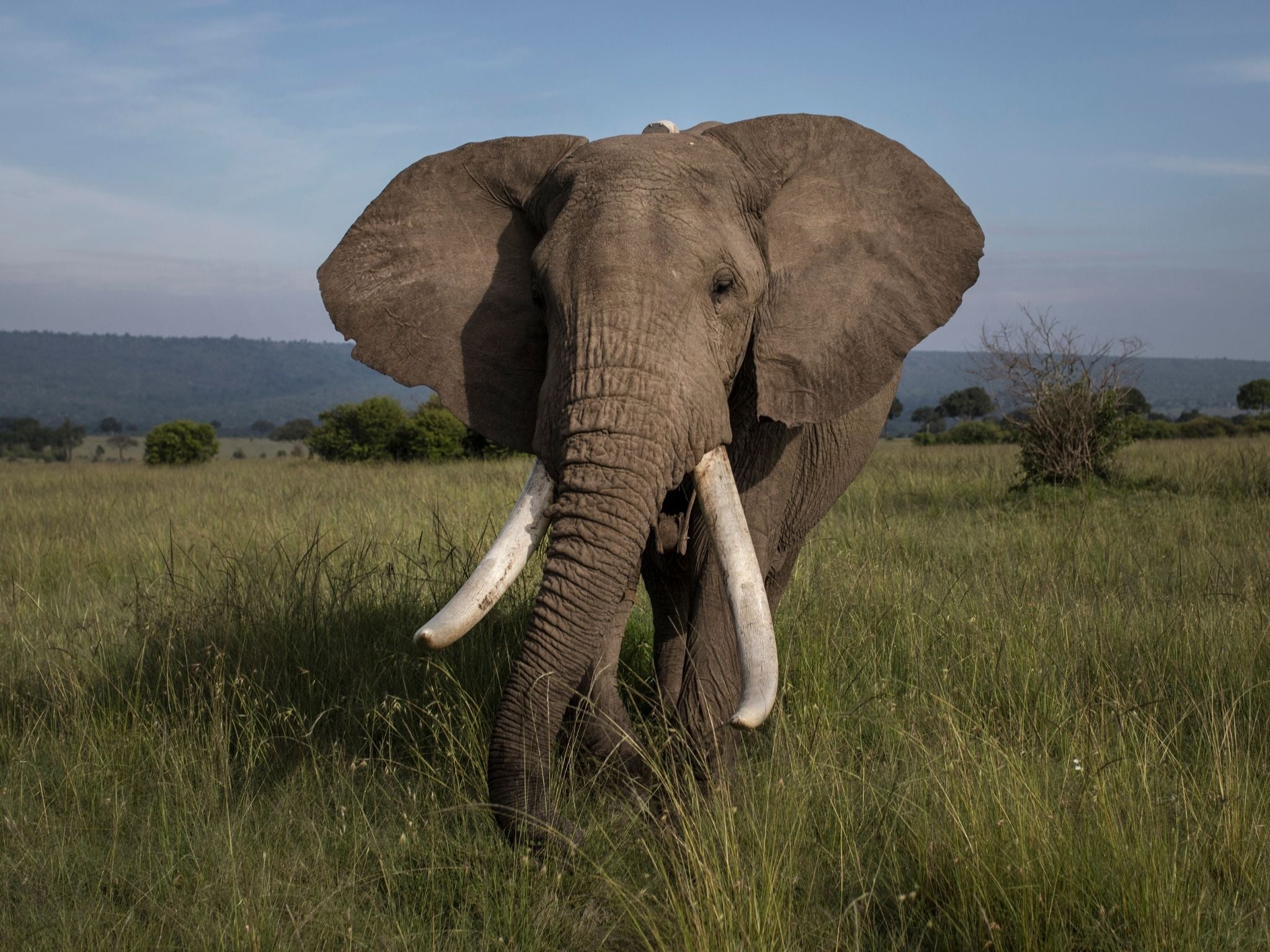
Your support helps us to tell the story
From reproductive rights to climate change to Big Tech, The Independent is on the ground when the story is developing. Whether it's investigating the financials of Elon Musk's pro-Trump PAC or producing our latest documentary, 'The A Word', which shines a light on the American women fighting for reproductive rights, we know how important it is to parse out the facts from the messaging.
At such a critical moment in US history, we need reporters on the ground. Your donation allows us to keep sending journalists to speak to both sides of the story.
The Independent is trusted by Americans across the entire political spectrum. And unlike many other quality news outlets, we choose not to lock Americans out of our reporting and analysis with paywalls. We believe quality journalism should be available to everyone, paid for by those who can afford it.
Your support makes all the difference.“Covid-19 has tested us,” says Dr Tara Stoinski, CEO and chief scientific officer of the Dian Fossey Gorilla Fund. “We work in fairly remote areas, so we’re used to uncertainty. But this has been a really difficult time for the people of Rwanda and the DRC, where we work. Tourism dollars have dried up. People are having trouble feeding their families.”
When news of the Covid-19 virus first broke, few could’ve predicted such a far-reaching, long-lasting crisis. The impact around the world has been catastrophic, not least in Africa’s wildlife areas, where people’s livelihoods and vital conservation work rely on tourism money coming in. But with new strains of the virus having emerged from South Africa and elsewhere, there’s no clear end in sight yet. A year into the crisis, with many people, businesses and NGOs in ‘survival mode’, resources and resilience are being stretched to breaking point.
The first Covid-19 case in Africa was reported in Egypt on February 14, 2020, the world’s most unwelcome Valentine’s Day “gift”, before spreading gradually across the continent. By March, national parks and reserves were closed. Though most African countries have avoided the high number of cases seen in the UK, US and Brazil, they have seen tourists gone and with that a wide range of jobs in wildlife zones disappear. “It’s been incredibly difficult as a self-employed guide,” says Rodney Nombekana, a wildlife photographer who runs his own photo safari business Nombekana Tours in South Africa. “Not having clients means no income. It’s no joke not being able to pay your monthly expenses, and the future’s not looking great.”
The crisis has affected Mr Nombekana’s mental health. “The biggest emotional and physiological effect has been not able to secure the future I want for my children. I had to take them out of good schools and put them back in government schools. Being locked up indoors for months without getting to the bush has been traumatic and made me physically sick. I ended up in hospital because of severe depression.”
Virus mutations in South Africa means most of southern Africa has now been put on travel ‘red lists’, including by the UK, which will limit tourism in 2021.“The most frustrating thing is not knowing if I should leave tourism completely, or hope things come back to some sort of normality soon, because breaking point is literally a month away and everything I’ve hoped for may be gone forever,” explains Mr Nombekana. “It’s difficult living with so much uncertainty. No one has any idea how long it will be before this pandemic is brought to its knees. The implications go beyond me and my family; our nature and biodiversity are at stake. Without tourism, everything’s reaching a point of no return. Something has to be done before it’s too late.”
Stop The Illegal Wildlife Trade
We are working with conservation charities Space for Giants and Freeland to protect wildlife at risk from poachers due to the conservation funding crisis caused by Covid-19. Help is desperately needed to support wildlife rangers, local communities and law enforcement personnel to prevent wildlife crime. Donate to help Stop the Illegal Wildlife Trade HERE
The Independent launched its Stop The Illegal Wildlife Trade campaign in response to the Covid pandemic and the impact it was feared it would have on conservation. It was feared that poachers would take advantage of the crisis, as national parks and protected areas became harder for overstretched NGOs and government agencies to patrol and protect. But also, with much of conservation work around the world relying heavily on revenue generated by tourism, the consequences of a widespread shutdown were clearly going to be catastrophic.
2020 was the worst year on record for global tourism, according to the UN World Tourism Organisation, dropping by 74 per cent, with one billion fewer international travellers than in 2019, putting 120 million direct tourism jobs at risk.
Wildlife tourism around the world supports 21.8 million jobs. Before the crisis, it was contributing $23.9bn (£17.2bn) a year to the African economy.In South Africa, one of the worst hit countries, travel and tourism brought in $24.6bn (£17.7bn) in 2019, seven per cent of the country’s economy, along with 1.4 million jobs. Over two million tourists visited Kenya’s wildlife areas in 2019, earning the country $1.03bn (£740m) and providing 1.6 million jobs. Gorilla tourism in Uganda alone brings in $34.3m (£24.7m) and contributes 60 per cent of the Uganda Wildlife Authority’s revenue. But, according to the UNWTO, visitor numbers to Africa last summer were down as low as 99 per cent.
“The last year has been one of the most difficult in living memory,” says Sara Gardiner, co-founder of Matetsi Victoria Falls lodge in Zimbabwe. “The toughest part has been the uncertainty with timelines, lockdowns and if, when and how we’d be able to welcome guests back.The only certainty over the last year has been uncertainty.”
After initial lockdown in mid-March 2020, the lodge had no guests for three months. Victoria Falls, usually a busy tourist hub, only received its first international flight in October, meaning six months with no international travellers. Many local tour operators went under.“There have been many times throughout the past year that have felt like breaking point. But there’s an incredible resilience within our travel industry and the people of Zimbabwe. We remain hopeful this will pass. Our thoughts are with the people in Africa who’ve lost jobs, homes and family members to illnesses that could have been treated if funds had been available for medical treatment. The losses from this global crisis will be unquantifiable.”
“At the beginning of 2020, we certainly couldn’t have predicted the year that would come,” says Lippa Wood, owner of House In The Wild and co-founder of Enonkishu Conservancy in Kenya’s Maasai Mara. “Our tourism revenue screeched to a halt, schools were closed, many workers lost their jobs. Although wildlife numbers in Enonkishu conservancy increased, a lack of tourism, along with rangers on decreased salaries, has left areas at risk to increased snares from bushmeat poachers, which lions and other large carnivores occasionally get caught up in.”
“This kind of crisis has tested our resilience, and we feel we couldn’t go on for much longer,” she adds. “There’s a heavy load of responsibility as we wonder how the communities and conservation projects our tourism model supports can survive without any visitors. It’s been a long, dark year. In some ways, 2020 has devastated us; in others, it has galvanized us.”
Recovery is likely to be slow, with international travel restricted for the immediate future and risk-averse tourists likely to be initially cautious about travelling abroad. A UNWTO survey found many experts don’t expect to see a return to pre-pandemic levels of tourism before 2023; 41 per cent predicted the return won’t happen until 2024 or beyond.
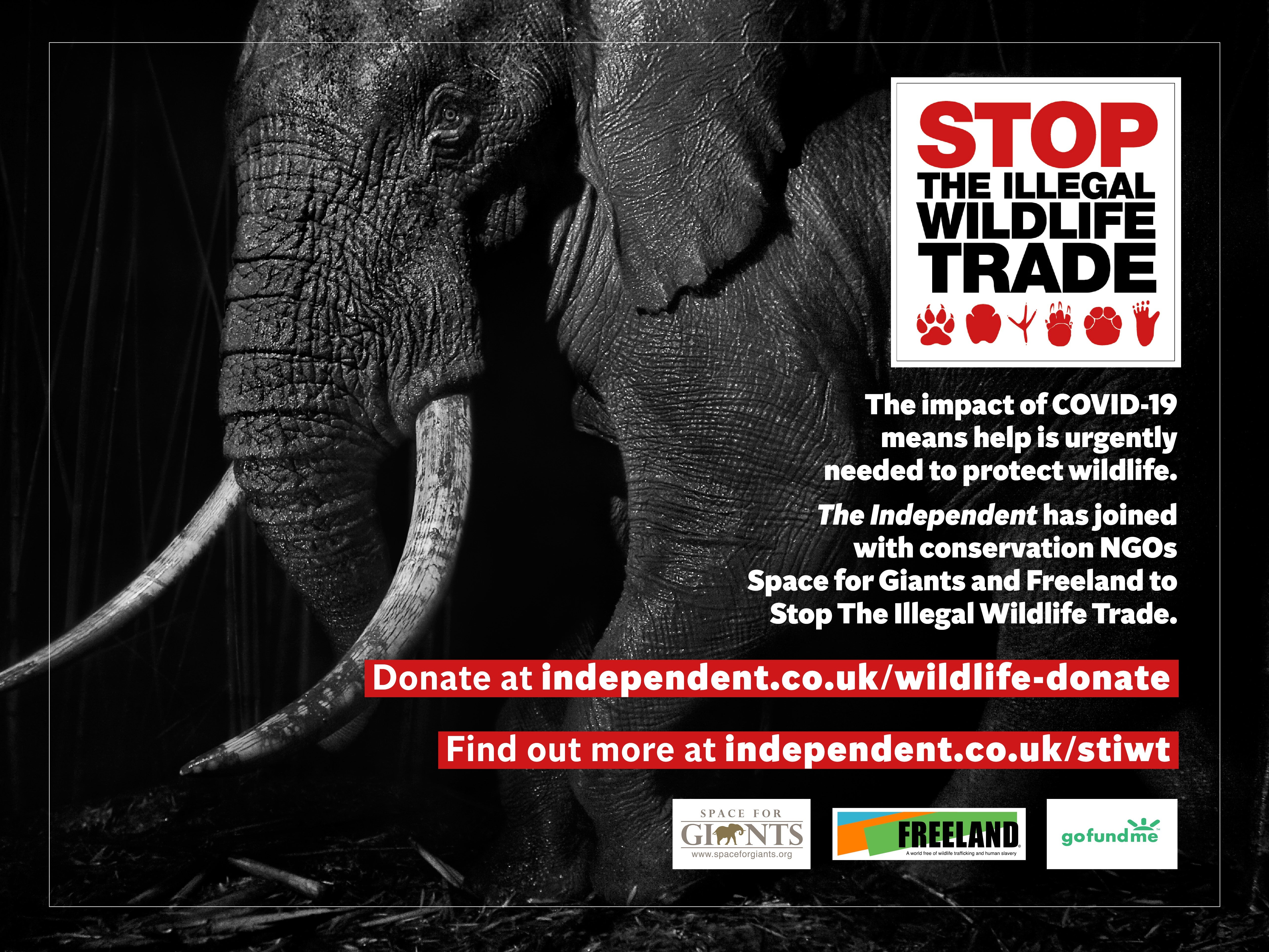
The crisis has also made the difficult work to protect Africa’s wildlife even more challenging. Wildlife organisations have needed to go into ‘survival mode’. Ranger patrols have been reduced. Projects have been paused, cancelled, delayed or scaled down.
“The lack of tourism revenues, lockdowns and Covid infections affected operations of national wildlife authorities across Africa,” explains Dr Winnie Kiiru, Senior Technical Adviser with Elephant Protection Initiative (EPI) Foundation, an alliance of 21 African countries working on elephant conservation. “The restrictions on movement and gatherings affected our work. Reduced funding led to salary cuts in many organisations. Larger organisations, like the EPI, are versatile enough to survive but smaller grassroots organisations that depended on tourism dollars and direct donations are unlikely to survive.”
“I hope the vaccine will be made available to populations in Africa as soon as possible,” Dr Kiiru continues. “I also know the survival of species, ecosystems and the livelihoods of people who share space with wildlife is an issue of global importance. Covid-19 has made it clear to us that there’s a direct link between the health of the planet and our health. I’d like to see the global community coming together to identify conservation priorities and ensure they continue.”
Poverty in Africa has risen through the pandemic with the loss of jobs. “This put pressure on natural resources, including an increase in illegal activities, such as bushmeat poaching and charcoaling,” explains Joseph Kyalo, research officer and pilot with Tsavo Trust, who work to protect elephants and other animals in Kenya. “Many people also relocated from towns and cities to rural areas after losing their jobs. To ensure food security, more land was tilled. In areas next to Protected Areas, this led to a spike in human-wildlife conflict.”
The increased threats to wildlife will continue while the pandemic still dominates. “Available resources have been stretched thin,” says Mr Kyalo. “We look to the future with cautious hope. But with low employment opportunities, it’s worrying that people will look into protected areas for a source of living. This puts wildlife species threatened with extinction at even greater risk, undoing years of conservation efforts.”
Community conservation projects are also threatened. Effective conservation work makes sure local communities feel the benefits of living with wildlife, especially from ecotourism. Those revenues have now dried up, meaning local communities are struggling through the same issues, such as human-wildlife conflict (elephants eating their crops, lions attacking cattle…), without earning any of the money that wildlife can bring.
The crisis has exposed the vulnerability of relying so heavily on tourism. There’s added urgency now among conservationists to help local people in wildlife areas make a living in more diverse ways, from sustainable agriculture (coffee, cashews and other non-timber products) to carbon credit schemes, not to replace tourism but to run alongside, make sure they’re not left so exposed in future. In Uganda, Conservation Through Public Health has helped locals develop a coffee industry, sold locally and internationally, meaning people aren’t reliant solely on gorilla tourism.
“We need to not only rely on tourism,” says Dr Gladys Kalema-Zikusoka, a Ugandan vet and founder of Conservation Through Public Health, which works on the coexistence of people and endangered mountain gorillas. “It’s a bit dangerous because anything can happen. It can be a pandemic, like Covid-19, or, in the past, Ebola outbreaks, or conflict, or the global financial crash. If there were more incomes and jobs in place around national parks and wildlife areas that don’t rely purely on tourism, the impact of Covid-19 wouldn’t have been as great because people would still be able to meet their basic family needs, like food and fuel, in the absence of tourism.”
But the absence of tourists isn’t the only problem. The global pandemic has caused an economic downturn, meaning charitable donations are dwindling. “We’ve worked tirelessly to make sure our vital frontline conservation operations haven’t missed a beat due to Covid,” says Jon Churcher, Chief Operating Officer with Game Rangers International, based in Lusaka, Zambia. “This hasn‘t been without consequences though. We had to use emergency funding from many of our donors to plug holes. That can only be done once. 2020 saw a lot of support from our partners releasing emergency funds to make sure operations, especially resource protection and law enforcement has been maintained. This hasn’t been easy and tough decisions have been made. The situation we’re in is not sustainable and this is true across the conservation sector.”
Mr Churcher is also concerned about how the next phases of the pandemic will play out internationally. “As the West emerges from Covid, the next steps in the pandemic will be unequal,” he suggests. “Much of Africa will miss out on the initial bounce back due to vaccine distribution, impacting local economies and the speed at which tourists return. Cuts to non-essential services in Zambia are inevitable and it will be conservation organisations, like ours, that will need to step in and offer even more support. The real impact of Covid is yet to be really felt in many of the places we work.”
In Rwanda and Uganda, the Dian Fossey Gorilla Fund has also been weathering the storm to keep gorillas safe, continue scientific research and help local people through the crisis. “Supporting human communities near gorilla habitat reduces pressures on that habitat,” says Dr Tara Stoinski. “We’ve increased our efforts to find and dismantle snares, which are placed in the forest by hunters searching of game, which can injure or even kill gorillas. We’ve seen an increase in the number of snares since Covid-19 appeared, but zero gorillas where we work have been trapped. We’re also working to lessen the need for local community members to enter the forest in search of food. We distributed 14,000 food-producing and other agroforestry trees in 2020, and we continued with food and water security programs to make sure people can eat.”
Beyond the immediate challenges on the ground, there’s hope among conservationists that long-lasting lessons can be learned from the crisis. “We need people across the globe to understand we’re at a critical juncture for our planet,” argues Dr Stoinski. “This pandemic should have opened everyone’s eyes to the importance of preserving wild spaces, protecting our planet’s biodiversity and fighting climate change. We will face more such diseases, which often cross from animals to humans when we invade wild spaces, unless we come up with ways to reduce our human footprint. This pandemic has shown that we have the technological means and scientific know-how to solve many of the problems that face us today. Now we need to muster the political will to get to work. This won’t just save gorillas - it will save all of humanity. But we need to start working toward solutions today, all of us, in every country in the world.”
Graeme Green is a wildlife photographer, journalist and founder of the New Big 5 project, an international initiative to create a New Big 5 of wildlife photography, rather than hunting.

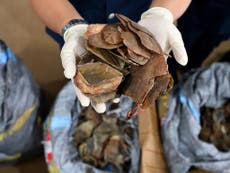

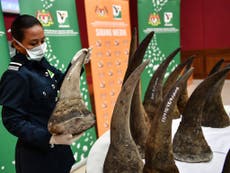
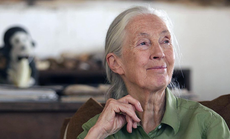

Join our commenting forum
Join thought-provoking conversations, follow other Independent readers and see their replies
Comments